Unit 1 This is me。
图片预览
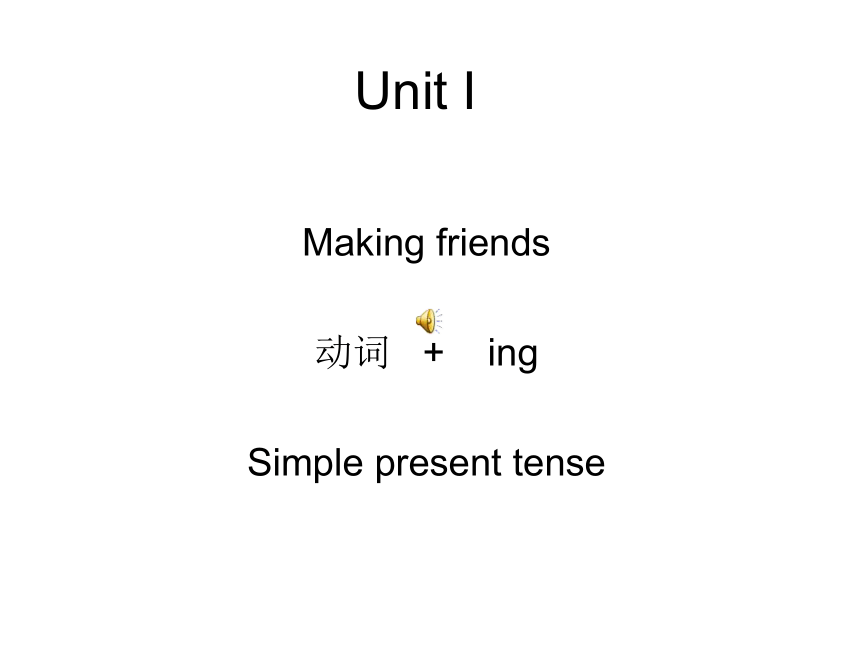
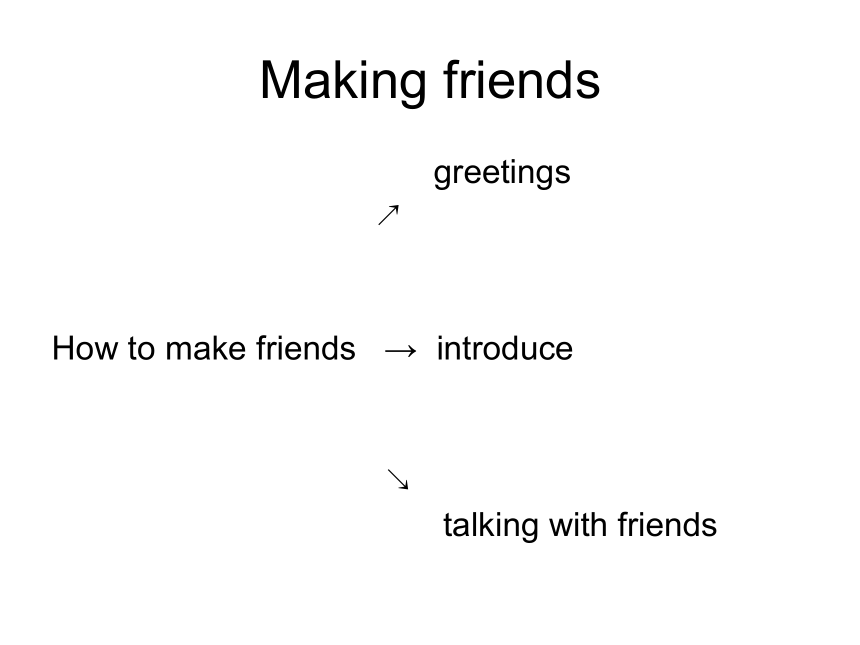
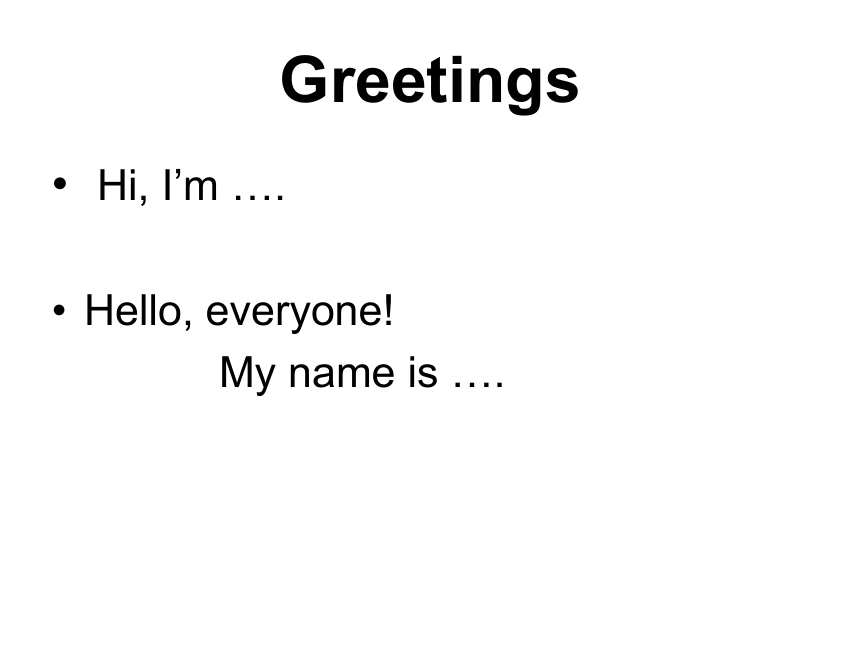

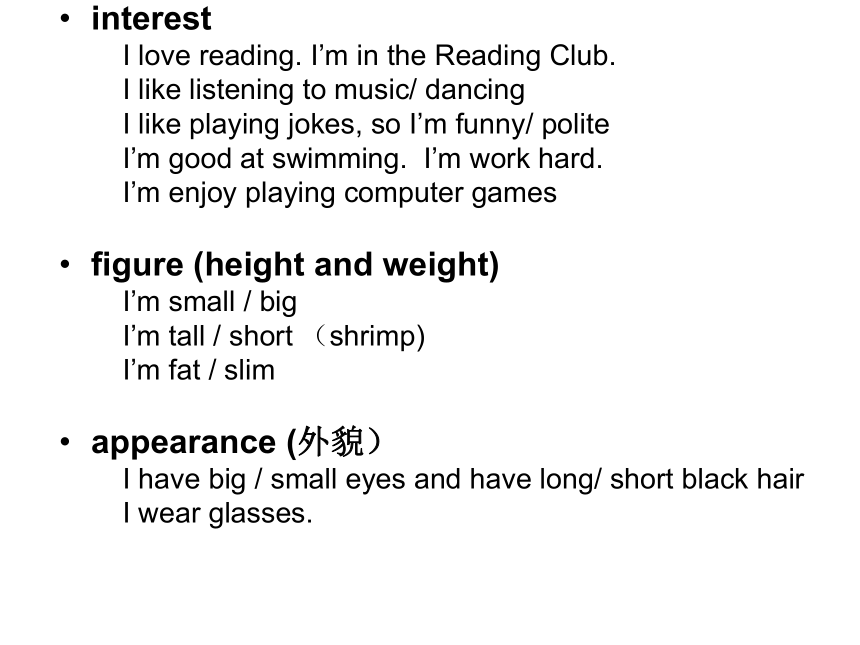
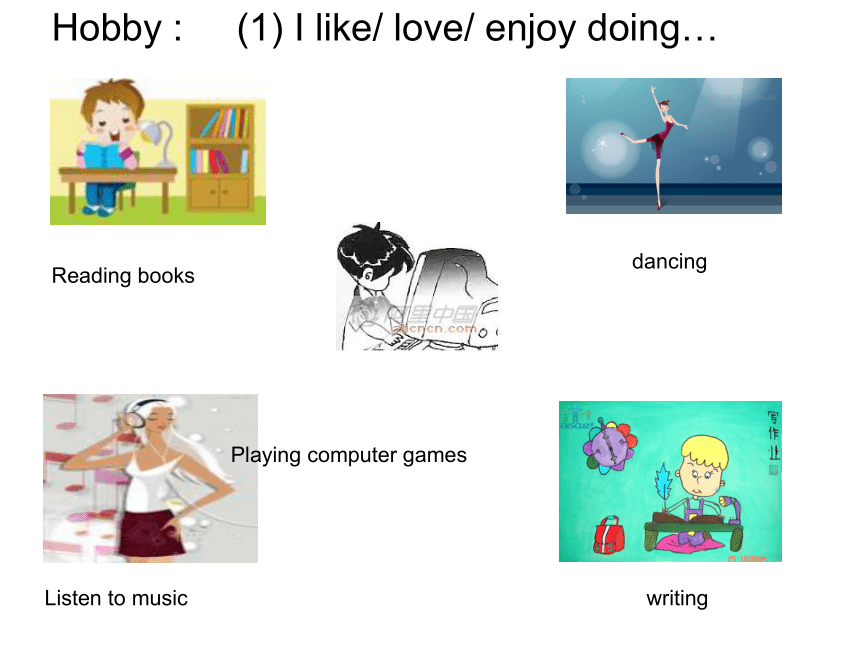
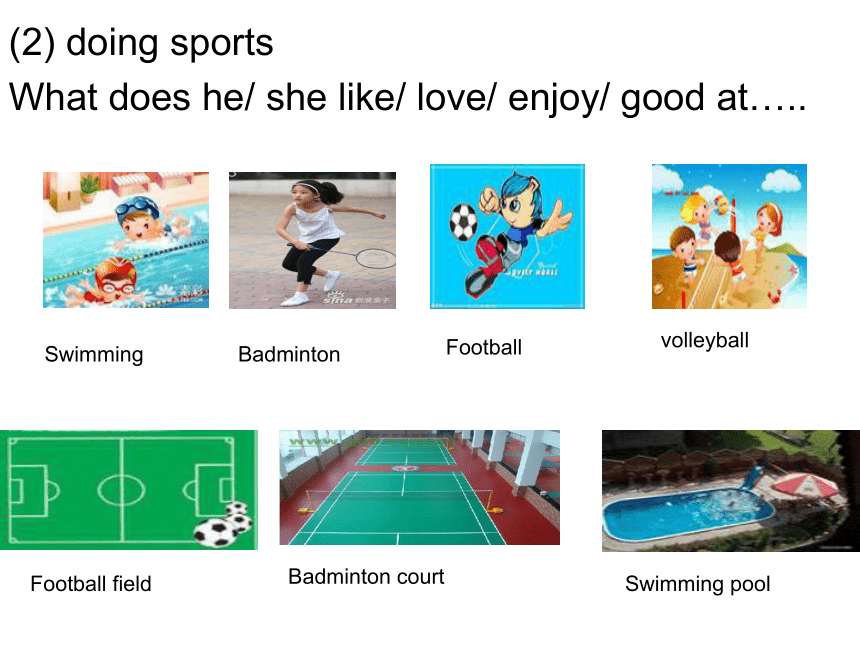
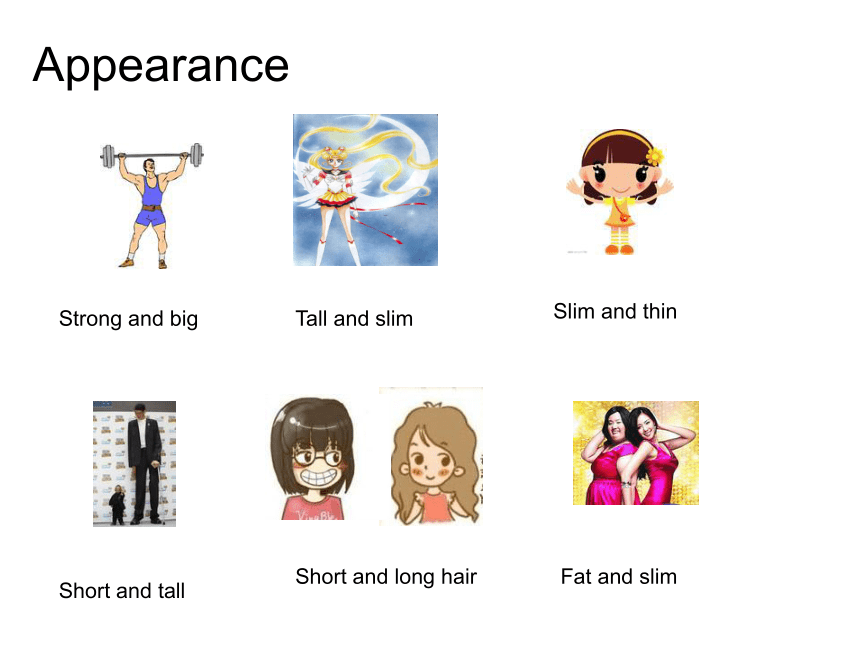
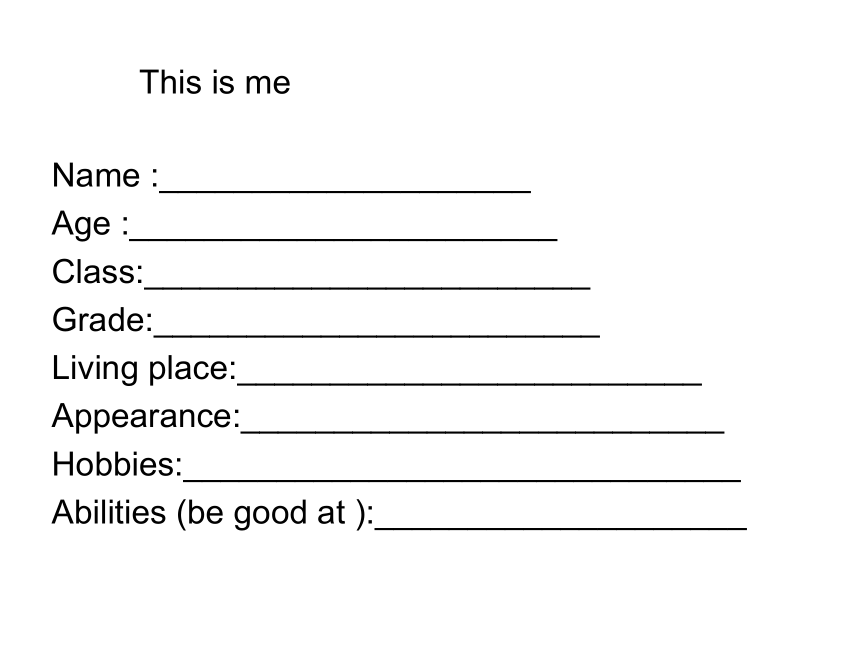
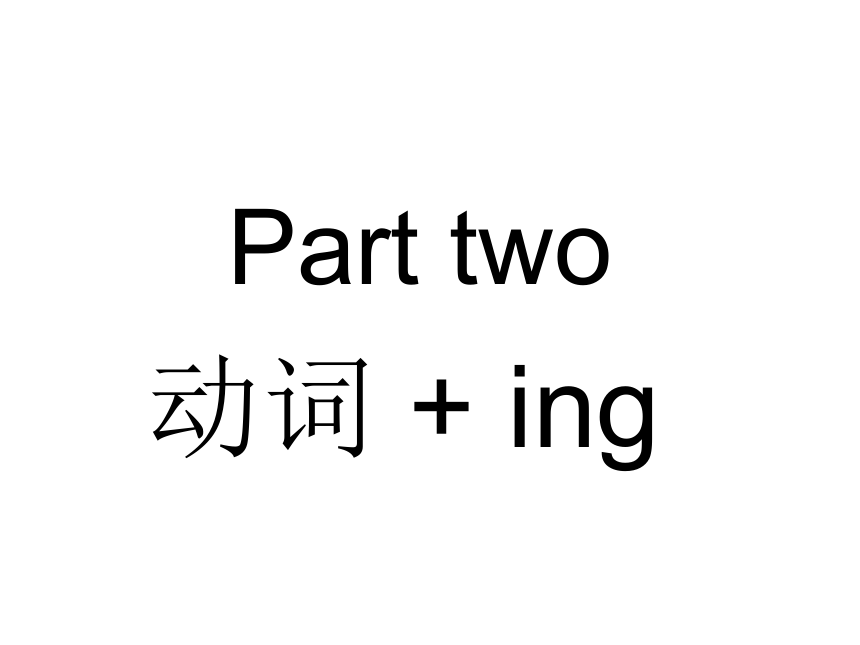


文档简介
(共31张PPT)
Unit I
Making friends
动词 + ing
Simple present tense
Making friends
greetings
↗
How to make friends → introduce
↘
talking with friends
Greetings
Hi, I’m ….
Hello, everyone!
My name is ….
Introduce
Age
I’m 12 years old
Class and Grade
I’m in Class One ,Grade Three
living place
I live in Beijing/ I come from Beijing
I was born in Shanghai, but I live in Beijing now.
interest
I love reading. I’m in the Reading Club.
I like listening to music/ dancing
I like playing jokes, so I’m funny/ polite
I’m good at swimming. I’m work hard.
I’m enjoy playing computer games
figure (height and weight)
I’m small / big
I’m tall / short (shrimp)
I’m fat / slim
appearance (外貌)
I have big / small eyes and have long/ short black hair
I wear glasses.
Hobby : (1) I like/ love/ enjoy doing…
Reading books
dancing
Playing computer games
Listen to music
writing
(2) doing sports
What does he/ she like/ love/ enjoy/ good at…..
Swimming
Badminton
Football
volleyball
Football field
Badminton court
Swimming pool
Appearance
Strong and big
Tall and slim
Slim and thin
Short and tall
Short and long hair
Fat and slim
This is me
Name :____________________
Age :_______________________
Class:________________________
Grade:________________________
Living place:_________________________
Appearance:__________________________
Hobbies:______________________________
Abilities (be good at ):____________________
Part two
动词 + ing
V + I n g
喜欢做某事
去做某事
擅长做某事
目前我们所学的动词+ing 的用法
一. 喜欢做某事 like/ love/ enjoy doing sth
e.g. 1.Daniel likes playing computer games
Daniel 喜欢打电脑游戏
2.Simon doesn’t love swimming
西门不酷爱游泳
3.Does Mille enjoy listening to music
Mille 喜欢听音乐吗?
二. 去做某事( go doing sth)
go swimming/ dancing/ singing/ shopping/running/ walking
e.g. 1.let’s go swimming.
我们去游泳吧。
2.His mother always goes shopping on Saturday.
他妈妈总是在周六去购物。
3.Does your grandfather go walking every morning.
你爷爷每天早晨散步吗?
三. 擅长做某事(be good /clever at doing sth)
e.g. 1. I’m not good at drawing.
我不擅长画画。
2. Is she clever at singing
她擅长唱歌吗?
3. They are not good at running, they are clever at swimming.
他们不擅长跑步,他们擅长游泳。
习题挑战
Tom ___ (run) every morning.
He ___ (be) good at ___ (draw). runs
we ___ (like)____ (read). Is, drawing
____ (do) you like____ (sing). Like. reading
My uncle___ (go) __(shop) every Sunday. Do
My parents _____ (love) _____ (shop). goes, shopping
Daniel and Simon _____ (come) from Beijing . ,love, shopping
They enjoy ____ (live) there. ,come
Mr. w u ______ (not like)______ (sit) in his office. He ____ (love) _____ (do ) sports and he ___ (be) clever at ______ (play) tennis. Living
doesn’t like, sitting, loves doing, is playing.
Grammar
Simple present tense
Simple present tense(一般现在时)
we use the simple present tense when we talk about:
Things that are true now. 现在是事实
e.g. My hair is long
Things that we do regularly. 我们经常做的事情
e.g. Simon plays football after school
Things that are always true. 永远是真理
e.g. Cats eat fish.
一般现在时的构成
Be 动词:主语+be (am, is are)+其它
e.g. I am a boy.
行为动词:主语+行为动词+其它
e.g. we study English .
*当主语为第三人称单数的时候,(he, she, it) 要在动词后加s / es
e.g. Mary likes English.
句中有谓语动词或者情态动词时
疑问句:把谓语动词或者情态动词提到主语的前面变成一般疑问句。(注意人称单复数)
I’m a student. → Are you a student
(He/she/ it) is a student. →Is (he/she/it) a student
(They/you/we) are students. →Are (they/you) students
否定句:在be动词词或者情态动词后面加not直接变成否定句。
I’m a student. → I’m not a student.
(He/she/it) is a student. → (He/she/it) is not a student.
(They/you/we) are students. → (They/you/we) are not students.
句中没有谓语动词或者情态动词时
疑问句:在主语前面加助动词do/does, 后面的动词变回原形,变成一般疑问句。(注意人称单复数)
I like fish. → Do you like fish
He/ she/ it likes fish. → Does he/she/it like fish
They/ you/ we like fish. →Do they/ you like fish
否定句:在助动词do/does后面加not,后面的动词变回原形,变成否定句。(注意人称单复数)
I like fish. → I do not like fish.
He/ she/ it likes fish. → He/ she/ it does not likes fish.
They/ you/ we like fish. →(I/ You/ We/They) do not like fish.
Yes, I .am.
.you/ they .are.
.he/ she/ it .is.
No, I .am not.
.you/ they .are not. .aren’t.
.he/ she/ it .is not. .isn’t.
句中有谓语动词或者情态动词时的回答
句中没有谓语动词或者情态动词时的回答
Yes, I .do.
.you/ they .do.
.he/ she/ it .does.
No, I .do not.
.you/ they .do not. .don’t.
.he/ she/ it .does not. .doesn’t.
How to add “s”, “es” to the verbs
Most verb
+s Look → looks
Play → plays
Love → loves
Verb ending in a consonant +y
-y, +ies Fly → flies
Study →studies
Verbs ending in ss, ch, sh or x
+es Miss → misses
Watch →watches
Verbs ending in o +es Go → goes
Do → does
Practice makes perfect
Model : I like fish. (meat)
I don’t like meat.
His brother plays football after school (basketball)
_______________________________________
2. It looks like a cat. (hat)
_______________________________________
3. She has a dog at home. (cat)
_______________________________________
翻译并写出其否定句,一般疑问句及肯定否定回答
他来自南京
他们在工厂上班
他们星期天去购物
汤姆和杰克放学后喜欢跳舞
我的英语老师喜欢在网上与朋友聊天
Put Chinese to English
他来自南京
He comes from Nanjing.
He doesn’t come from Nanjing.
Does he come from Nanjing?
Yes, he does.
No, he doesn’t.
他在工厂上班
He works in a factory.
He doesn’t work in a factory.
Does he work in a factory
Yes, he does. No, he doesn’t.
他们星期天去购物
They go shopping on Sunday.
They don’t go shopping on Sunday.
Do they go shopping on Sunday
Yes, they do. No, they don’t.
汤姆和杰克放学后喜欢跳舞
Tom and Jack loves dancing after school.
Tom and Jack don’t love dance after school.
Do Tom and Jack love dance after school
Yes, they do. No, they don’t.
我的英语老师喜欢在网上与朋友聊天
My English teacher enjoys chatting with friends on the internet.
My English teacher doesn’t enjoy chatting with friends on the internet.
Does your English teacher enjoy chatting with friends on the internet.
Yes, she does. No, she doesn’t
Correction
Mr. Green likes work in China very much.
like doing sth, work→ working
My mother often go shopping on Sundays.
主语为第三人称单数,动词应该用第三人称单数形式go → goes
Where does Jim and Kate work
Jim 和Kate 是两个人,所以主语为复数,谓语动词应用复数形式do → does
Does she has a pencil box
在疑问句中,谓语动词提前,主语接后,动词应改为原形has → have
He doesn’t likes shopping on Sunday.
在没有谓语动词的肯定句→否定句时,借用助动词+动词=谓语动
词,直接在助动词后面加not, 行为动词变成原形。Likes →like
Where do your sister study
在没有谓语动词的肯定句→特殊疑问句,借用助动词,特殊疑问词
提前,后接助动词,助动词单复数形式由主语单复数决定,your
sister为单数,所以助动词应用单数does
My parents works in a factory far away.
我的父母为复数,所以主语为复数,动词也应用复数形式
Today the people in the USA usually drives to work.
The people 在这里泛指美国人这个群体,所以为复数,后面的行
为动词也应用复数,drives → drive
Unit I
Making friends
动词 + ing
Simple present tense
Making friends
greetings
↗
How to make friends → introduce
↘
talking with friends
Greetings
Hi, I’m ….
Hello, everyone!
My name is ….
Introduce
Age
I’m 12 years old
Class and Grade
I’m in Class One ,Grade Three
living place
I live in Beijing/ I come from Beijing
I was born in Shanghai, but I live in Beijing now.
interest
I love reading. I’m in the Reading Club.
I like listening to music/ dancing
I like playing jokes, so I’m funny/ polite
I’m good at swimming. I’m work hard.
I’m enjoy playing computer games
figure (height and weight)
I’m small / big
I’m tall / short (shrimp)
I’m fat / slim
appearance (外貌)
I have big / small eyes and have long/ short black hair
I wear glasses.
Hobby : (1) I like/ love/ enjoy doing…
Reading books
dancing
Playing computer games
Listen to music
writing
(2) doing sports
What does he/ she like/ love/ enjoy/ good at…..
Swimming
Badminton
Football
volleyball
Football field
Badminton court
Swimming pool
Appearance
Strong and big
Tall and slim
Slim and thin
Short and tall
Short and long hair
Fat and slim
This is me
Name :____________________
Age :_______________________
Class:________________________
Grade:________________________
Living place:_________________________
Appearance:__________________________
Hobbies:______________________________
Abilities (be good at ):____________________
Part two
动词 + ing
V + I n g
喜欢做某事
去做某事
擅长做某事
目前我们所学的动词+ing 的用法
一. 喜欢做某事 like/ love/ enjoy doing sth
e.g. 1.Daniel likes playing computer games
Daniel 喜欢打电脑游戏
2.Simon doesn’t love swimming
西门不酷爱游泳
3.Does Mille enjoy listening to music
Mille 喜欢听音乐吗?
二. 去做某事( go doing sth)
go swimming/ dancing/ singing/ shopping/running/ walking
e.g. 1.let’s go swimming.
我们去游泳吧。
2.His mother always goes shopping on Saturday.
他妈妈总是在周六去购物。
3.Does your grandfather go walking every morning.
你爷爷每天早晨散步吗?
三. 擅长做某事(be good /clever at doing sth)
e.g. 1. I’m not good at drawing.
我不擅长画画。
2. Is she clever at singing
她擅长唱歌吗?
3. They are not good at running, they are clever at swimming.
他们不擅长跑步,他们擅长游泳。
习题挑战
Tom ___ (run) every morning.
He ___ (be) good at ___ (draw). runs
we ___ (like)____ (read). Is, drawing
____ (do) you like____ (sing). Like. reading
My uncle___ (go) __(shop) every Sunday. Do
My parents _____ (love) _____ (shop). goes, shopping
Daniel and Simon _____ (come) from Beijing . ,love, shopping
They enjoy ____ (live) there. ,come
Mr. w u ______ (not like)______ (sit) in his office. He ____ (love) _____ (do ) sports and he ___ (be) clever at ______ (play) tennis. Living
doesn’t like, sitting, loves doing, is playing.
Grammar
Simple present tense
Simple present tense(一般现在时)
we use the simple present tense when we talk about:
Things that are true now. 现在是事实
e.g. My hair is long
Things that we do regularly. 我们经常做的事情
e.g. Simon plays football after school
Things that are always true. 永远是真理
e.g. Cats eat fish.
一般现在时的构成
Be 动词:主语+be (am, is are)+其它
e.g. I am a boy.
行为动词:主语+行为动词+其它
e.g. we study English .
*当主语为第三人称单数的时候,(he, she, it) 要在动词后加s / es
e.g. Mary likes English.
句中有谓语动词或者情态动词时
疑问句:把谓语动词或者情态动词提到主语的前面变成一般疑问句。(注意人称单复数)
I’m a student. → Are you a student
(He/she/ it) is a student. →Is (he/she/it) a student
(They/you/we) are students. →Are (they/you) students
否定句:在be动词词或者情态动词后面加not直接变成否定句。
I’m a student. → I’m not a student.
(He/she/it) is a student. → (He/she/it) is not a student.
(They/you/we) are students. → (They/you/we) are not students.
句中没有谓语动词或者情态动词时
疑问句:在主语前面加助动词do/does, 后面的动词变回原形,变成一般疑问句。(注意人称单复数)
I like fish. → Do you like fish
He/ she/ it likes fish. → Does he/she/it like fish
They/ you/ we like fish. →Do they/ you like fish
否定句:在助动词do/does后面加not,后面的动词变回原形,变成否定句。(注意人称单复数)
I like fish. → I do not like fish.
He/ she/ it likes fish. → He/ she/ it does not likes fish.
They/ you/ we like fish. →(I/ You/ We/They) do not like fish.
Yes, I .am.
.you/ they .are.
.he/ she/ it .is.
No, I .am not.
.you/ they .are not. .aren’t.
.he/ she/ it .is not. .isn’t.
句中有谓语动词或者情态动词时的回答
句中没有谓语动词或者情态动词时的回答
Yes, I .do.
.you/ they .do.
.he/ she/ it .does.
No, I .do not.
.you/ they .do not. .don’t.
.he/ she/ it .does not. .doesn’t.
How to add “s”, “es” to the verbs
Most verb
+s Look → looks
Play → plays
Love → loves
Verb ending in a consonant +y
-y, +ies Fly → flies
Study →studies
Verbs ending in ss, ch, sh or x
+es Miss → misses
Watch →watches
Verbs ending in o +es Go → goes
Do → does
Practice makes perfect
Model : I like fish. (meat)
I don’t like meat.
His brother plays football after school (basketball)
_______________________________________
2. It looks like a cat. (hat)
_______________________________________
3. She has a dog at home. (cat)
_______________________________________
翻译并写出其否定句,一般疑问句及肯定否定回答
他来自南京
他们在工厂上班
他们星期天去购物
汤姆和杰克放学后喜欢跳舞
我的英语老师喜欢在网上与朋友聊天
Put Chinese to English
他来自南京
He comes from Nanjing.
He doesn’t come from Nanjing.
Does he come from Nanjing?
Yes, he does.
No, he doesn’t.
他在工厂上班
He works in a factory.
He doesn’t work in a factory.
Does he work in a factory
Yes, he does. No, he doesn’t.
他们星期天去购物
They go shopping on Sunday.
They don’t go shopping on Sunday.
Do they go shopping on Sunday
Yes, they do. No, they don’t.
汤姆和杰克放学后喜欢跳舞
Tom and Jack loves dancing after school.
Tom and Jack don’t love dance after school.
Do Tom and Jack love dance after school
Yes, they do. No, they don’t.
我的英语老师喜欢在网上与朋友聊天
My English teacher enjoys chatting with friends on the internet.
My English teacher doesn’t enjoy chatting with friends on the internet.
Does your English teacher enjoy chatting with friends on the internet.
Yes, she does. No, she doesn’t
Correction
Mr. Green likes work in China very much.
like doing sth, work→ working
My mother often go shopping on Sundays.
主语为第三人称单数,动词应该用第三人称单数形式go → goes
Where does Jim and Kate work
Jim 和Kate 是两个人,所以主语为复数,谓语动词应用复数形式do → does
Does she has a pencil box
在疑问句中,谓语动词提前,主语接后,动词应改为原形has → have
He doesn’t likes shopping on Sunday.
在没有谓语动词的肯定句→否定句时,借用助动词+动词=谓语动
词,直接在助动词后面加not, 行为动词变成原形。Likes →like
Where do your sister study
在没有谓语动词的肯定句→特殊疑问句,借用助动词,特殊疑问词
提前,后接助动词,助动词单复数形式由主语单复数决定,your
sister为单数,所以助动词应用单数does
My parents works in a factory far away.
我的父母为复数,所以主语为复数,动词也应用复数形式
Today the people in the USA usually drives to work.
The people 在这里泛指美国人这个群体,所以为复数,后面的行
为动词也应用复数,drives → drive
同课章节目录
- 预备课程
- Lesson 1 Nice to meet you !
- Lesson 2 A happy family
- Lesson 3 A nice school
- Lesson 4 You look cool !
- Lesson 5 Wonderful things
- Lesson 6 Have nice food
- Lesson 7 Enjoy our days
- Lesson 8 Let's have fun !
- Unit 1 This is me
- Unit 2 Let's play sports
- Unit 3 Welcome to our school
- Unit 4 My day
- Unit 5 Let’s celebrate
- Unit 6 Food and lifestyle
- Unit 7 Shopping
- Unit 8 Fashion
